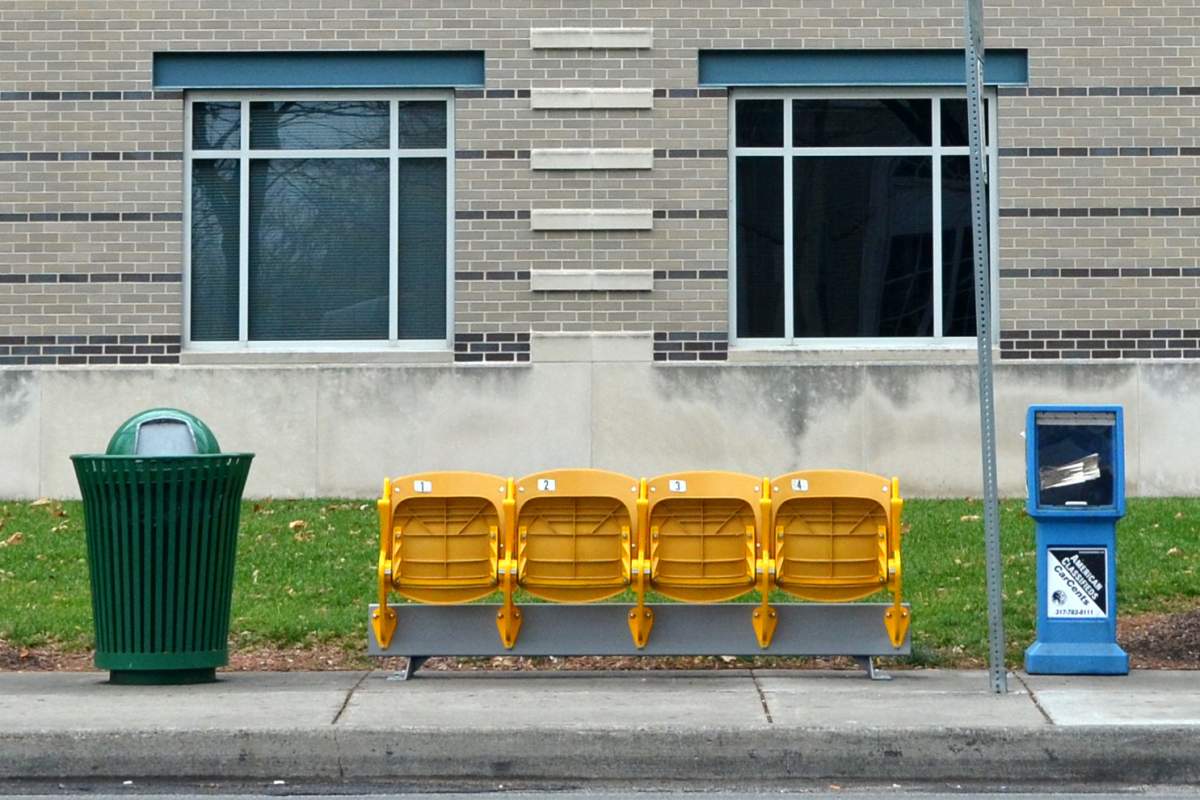
When somebody starts a business, one of the first questions they have to ask is, "Do I want this to be a commercial business, or do I want this to be a non-profit?"
-Michael Rushton, Director of Arts Administration and Faculty Member at the School of Public and Environmental Affairs at Indiana University
People for Urban Progress is a non-profit based out of Indianapolis, Indiana. Their projects focus on reusing and up-cycling materials in their community. People for Urban Progress has turned abandoned seats from a baseball stadium into bus stop benches, and they have turned materials from the demolished RCA Dome into wallets and bags.
On the first Friday of each month, their space in Fountain Square, Indianapolis can look more like a shopping center than a traditional non-profit office. Many of their items are for sale, and visitors are often seen picking up t-shirts and investigating products. Loud music is playing and prices are displayed along walls and tables. So, why is this organization a non-profit? Wouldn't the for-profit business model be a better fit?
 The Distinction
Michael Rushton, Director of Arts Administration at the School of Public and Environmental Affairs at Indiana University, laid out the differences between the two statuses. The advantage to being a non-profit, according to Rushton, is the access to additional sources of revenue, including grants, donations, and contributions from social service agencies. The disadvantage to being a non-profit is that you are unable to keep any of the profit that goes over cost. All of that revenue has to go back into the non-profit.
The financial opportunities and limitations are different for conventional businesses. They are allowed to keep revenue that goes over cost. In other words, according to Rushton, "You keep the money. It's yours."
For-profit organizations are not eligible to receive revenue from all of the same sources that non-profits are. "Governments are not going to give you grants to run a commercial business," Rushton adds.
The Decision
Five years ago, Michael Bricker, the Chief Innovator for People for Urban Progress, was faced with this question. He looked at his products and the way they served his community.
"We just kept coming back to the notion that what we were doing was aimed at social good," explains Michael Bricker.
Non-profits "make cities what they are," states Michael Rushton. According to Rushton, the issue of social good is important in the foundation of a non-profit.
An organization that has declared itself a non-profit is often making a statement about their values, Rushton asserts, and the intangible value that the organization provides to the community. Rather than "saying that you don't think there's enough public interest to sustain a commercial organization, you're saying that... [the organization] will require different types of support than just what I can [generate] from directly sell[ing] to the public."
Spreading Ideas
Bricker, principal of People for Urban Progress, was convinced that being in a position to receive financial contributions from grants and foundations would help his ideas spread throughout his community.
Recently, he was invited to participate in a project focused on re-using seats from Butler University and the Circle Theatre in Indianapolis. Although the contract eventually went to someone else, the fact that these kinds of creative reuse projects even exist leads Bricker to wonder, "How responsible are we in the culture shift? There's no way to measure that, but I'd like to think that we are a part of it in some degree."






